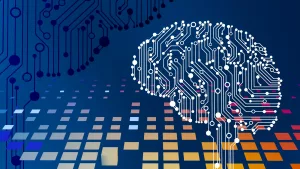Smartwatches have revolutionized the way we monitor and track our health, providing us with real-time data on various aspects of our well-being. But what enables these devices to accurately track our health metrics? Smartwatches are equipped with an array of sensors, such as heart rate monitors, accelerometers, gyroscopes, and GPS modules. These sensors work together to collect data on your heart rate, activity levels, sleep patterns, and even location. The heart rate monitor tracks your pulse throughout the day, providing valuable insights into your cardiovascular health. Accelerometers measure your movement and activity levels, allowing the smartwatch to determine whether you are walking, running, or even sleeping. Gyroscopes help in detecting orientation and motion, enabling features like step counting and exercise recognition. GPS modules provide accurate location data, which can be used for activities like mapping your running route or tracking your outdoor workouts.
In-Depth Look at Sensors
Heart Rate Monitors
Heart rate monitors in smartwatches use photoplethysmography (PPG) technology. This involves shining a light into your skin and measuring the amount of light that is absorbed. Blood absorbs light, so as your heart beats and blood flows through your veins, the varying light absorption levels are detected by the sensor. This data is used to calculate your heart rate in beats per minute (BPM).
Example: The Apple Watch, for instance, uses green LED lights paired with light-sensitive photodiodes to detect the amount of blood flowing through the wrist. This technology allows the watch to provide continuous heart rate readings and alert users if their heart rate is too high or too low.
Accelerometers and Gyroscopes
These sensors are crucial for activity tracking. An accelerometer measures the acceleration of your movements, while a gyroscope measures orientation and rotation. Together, they can differentiate between various physical activities, such as walking, running, and cycling.
Tip: To get the most accurate readings, ensure your smartwatch is worn snugly on your wrist. If it’s too loose, the sensors might not capture the data accurately.
GPS Modules
GPS tracks your location, providing valuable data for outdoor activities. It measures distance, speed, and elevation, which is essential for runners, cyclists, and hikers who want to monitor their performance and progress.
Common Mistake: Relying solely on GPS can drain your smartwatch’s battery quickly. Consider using it selectively for specific workouts rather than leaving it on all day.
Health Algorithms
Behind the scenes, smartwatches use sophisticated algorithms to analyze the data collected by the sensors. These algorithms can identify patterns and trends in your health metrics, providing insights into your overall well-being. By analyzing your heart rate variability, sleep quality, and activity patterns, the algorithms can offer personalized recommendations for improving your health and well-being. They can also detect anomalies or irregularities in your data, alerting you to potential health issues that may require medical attention.
Personalization Through Machine Learning
Many smartwatches employ machine learning to personalize health tracking. Over time, as the device gathers more data, it can tailor its recommendations to fit your unique lifestyle and health goals.
Example: Fitbit’s devices, for instance, use machine learning to learn your habits and routines, thus providing more accurate sleep cycle tracking and personalized activity suggestions.
Integration with Health Apps
Smartwatches often integrate with health and fitness apps, allowing users to track their progress and set goals. This integration enhances the overall health-tracking experience and provides users with a comprehensive view of their health data. By syncing data from the smartwatch to a health app on your smartphone, you can access detailed reports, trends, and insights about your health and fitness activities.
Comprehensive Health Ecosystem
Integration goes beyond simple data transfer. It creates a holistic ecosystem where multiple data points converge to provide a complete picture of your health.
Example: Apps like MyFitnessPal can sync with your smartwatch to track calories burned, while also allowing you to log food intake. This helps you maintain a balanced calorie count in relation to your physical activity.
Data Storage and Syncing
Smartwatches store the health data they collect either locally or in the cloud. This data can then be synced with your smartphone or other devices, enabling you to access and review your health metrics over time. Local storage on the smartwatch ensures that your data is always accessible, even when you are not connected to a smartphone or the internet. Cloud storage offers the advantage of backup and synchronization across multiple devices, ensuring that your health data is safe and up-to-date.
Privacy and Security Concerns
With data storage, privacy becomes a crucial concern. It’s important to understand how your data is stored and who has access to it. Most major smartwatch manufacturers have taken significant steps to ensure data security and compliance with privacy regulations.
Tip: Regularly check the privacy settings on your smartwatch and associated apps to control what data is shared and with whom.
Continuous Innovation
Advancements in technology are constantly improving the capabilities of smartwatches when it comes to health tracking. From enhanced sensors to more advanced algorithms, smartwatches continue to evolve to provide users with more accurate and insightful health data. Manufacturers are constantly pushing the boundaries of what smartwatches can offer in terms of health monitoring, introducing new features such as blood oxygen saturation measurement, stress tracking, and ECG capabilities.
Cutting-Edge Features
- Blood Oxygen Monitoring: Measures the oxygen saturation in your blood, providing insights into your respiratory health.
Example: The Samsung Galaxy Watch has a SpO2 sensor that provides continuous blood oxygen monitoring, which can be particularly useful for athletes training at high altitudes.
- ECG Monitoring: Allows you to take an electrocardiogram, a test that records the electrical signals in your heart. This can be crucial for detecting irregular heart rhythms.
Example: The Apple Watch Series 6 introduced the ECG app, which can generate an ECG similar to a single-lead electrocardiogram.
- Stress Tracking: Uses heart rate variability and other metrics to assess your stress levels and provide relaxation techniques.
Tip: If your smartwatch offers stress tracking, use it to identify stress patterns throughout your day and incorporate mindfulness or breathing exercises to manage stress effectively.
Practical Tips for Maximizing Your Smartwatch’s Health Tracking
- Regular Calibration: Some smartwatches allow you to calibrate sensors for improved accuracy. Check your device’s settings or the manufacturer’s guidance for instructions.
- Consistent Wear: For the most consistent health tracking data, wear your smartwatch consistently and during all activities, including sleep.
- Firmware Updates: Keep your smartwatch updated with the latest firmware to benefit from improved algorithms and new features.
- Check Compatibility: Ensure that your smartwatch is compatible with your smartphone and other devices, especially if you plan to use third-party health apps.
Real-Life Case Studies
Case Study 1: Managing Chronic Conditions
John, a 45-year-old with hypertension, uses his smartwatch to monitor his heart rate and blood pressure throughout the day. By keeping track of this data, he has been able to identify triggers that elevate his blood pressure and adjust his lifestyle accordingly. His smartwatch also reminds him to take his medication, contributing to better health management.
Case Study 2: Fitness Enthusiast
Emily, a marathon runner, leverages her smartwatch’s GPS and heart rate monitoring to optimize her training. By analyzing her running routes and heart rate zones, she has improved her pace and endurance, leading to personal bests in her races.
Conclusion
The continuous refinement of these algorithms ensures that the health insights provided by smartwatches are increasingly accurate and relevant to users’ needs. As technology continues to evolve, smartwatches are poised to become indispensable tools for proactive health management and personalized care. Whether you’re a fitness enthusiast, managing a chronic condition, or simply looking to improve your overall health, the right smartwatch can be a valuable ally in your wellness journey.



